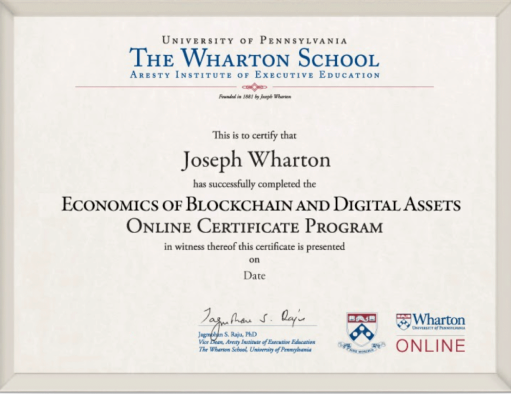.jpeg)
The metaverse is opening as many opportunities for enterprises as it is for individuals. Many companies are flocking to the fledgling technology to establish themselves early in this promising new virtual world. While some industries in the real world are moving into the new virtual world, other companies will find their inception within the metaverse. Creators are already selling NFTs, and digital property owners can rent their virtual space to tenants. But, what other familiar (yet different) business activities can we begin to tease out of the metaverse?
The metaverse represents a world of new business opportunities for current businesses and future startups. This second complementary plane of reality can transform how we interact with each other, entertainment habits, purchasing behaviors, and more. Just as the internet’s utility was shaped by the industry that adopted it, so will it be with the metaverse. Each sector will mold and shape the metaverse to serve its own unique purposes.
Social media can connect us; however, the connection is still generally less than direct in instances of text, pictures, or even videos. However, the metaverse could be the perfect technology to launch future connectivity platforms that provide a more immersive experience.
In fact, it is likely that the “immersive” factor will change the way we understand social media. Future monetization models of social media may include advertisements like the models we see today. However, advertisements may be so disruptive to the metaverse experience that companies could charge the individual user on the platform. Nascent forms of this can already be seen in programs like Decentraland and The Sandbox, and the creation of these spaces will almost certainly be a good business opportunity.
The entertainment industry may stand to gain the most from the development of metaverse technology. Immersive frameworks like augmented reality and virtual reality will be able to transport audiences and video game players to new worlds in ways that have not been possible.
There are ample business opportunities for hardware production, like headsets and audio devices, as well as for the actual entertainment creators. Directors, designers, creators, and project/product managers will all be necessary profit-driven components of the current and future metaverse.
Many artists and creators have taken a keen interest in the metaverse as an opportunity to create and sell digital art. Metaverse technology combined with blockchain has allowed creators to operate profitably in the metaverse and have more control over their creations than ever before.
In addition to the extended capacity for creativity, the internet, in general, provides an equally great capacity for reaching the masses. Singers, artists, performers, and more will be able to monetize their work like never before. Additionally, auxiliary companies like record labels, agents, and managers have an equally important role to play.
As the COVID-19 pandemic winds down, some permanent changes are here to stay, like the advent of remote work. Asynchronous work opportunities have provided people with more geographic flexibility than ever. Despite this flexibility, there are distinct scheduling and planning challenges that come from lacking a shared office space.
Metaverse technology will almost certainly be used to help bring together remote workers from around the world. The metaverse infrastructure for immersive calls, along with immersive project-management software, represents a substantial opportunity for developers and visionaries.
Most business within the metaverse is linked to the outside world. However, a few enterprising companies are making a concerted effort to develop real companies strictly in the metaverse.
It should be no surprise that building the actual metaverse infrastructure is one of the most important and profitable business activities. Meta (formerly Facebook) is a prime example of this. On October 28, 2022, Mark Zuckerberg announced that the popular social media platform Facebook would be changing its name (and focus) to create the metaverse.
In his keynote video, Zuckerberg cast his vision of the future of the Meta metaverse, saying, “The metaverse is a set of virtual spaces where you can create and explore with other people who aren’t in the same physical space as you. You’ll be able to hang out with friends, work, play, learn, shop, create, and more.”
The virtual spaces to which Zuckerberg refers must be built as compelling or more compelling than space in the real world. Engineers, developers, designers, and visionaries can monetize their vision of the future by casting a vision and then building it. Other metaverse worlds, such as Roblox or Decentraland, are already capturing mass amounts of attention with relatively low-fi design. Those who can build increasingly complex and beautiful worlds will be able to capture human attention and market share with ease.
Niantic is a spinoff business from Google (Alphabet) and is best known for its popular integrative game, Pokemon Go. This game saw people across the country wandering around urban and suburban areas to collect digital Pokemon. Those unfamiliar with the game should know that Pokemon has always been a virtual-only video game where players could catch mythical creatures and use them to fight other players.
However, Niantic changed this classic video game from a third-person game into a first-person game with augmented reality technology. Instead of controlling a player on the screen, the individual became the protagonist within the game. This shift from third person to first person made the experience exceptionally immersive. Players could use their cellphones to find these digital monsters, capture them, and then battle them with other players.
Pokemon Go is superimposed on reality with augmented reality technology using a player’s smartphone. Without detracting from Niantic's excellent execution, the idea of first-person participation is obvious and could easily be applied to other areas of the entertainment industry. It is likely that video games will slowly but surely become more immersive and more integrated with reality. It’s also worth noting that Niantic’s venture into the metaverse was incredibly profitable. In its first month, it broke over $200 million in revenue and now annually grosses approximately $1.2 billion. As a company, Niantic is valued at just over $9 billion.
RTFKT Studios is a digital studio that creates digital content and NFTs. The company is a “creator-led” organization whose founders have hands-on experience with the shoe manufacturing industry. These shoes that RTFKT creates exist within the metaverse and can be worn by avatars/people. However, other shoes can be “worn” in real life with augmented reality technology. Besides virtual footwear, RTFKT has begun creating living spaces, clothes, and exoskeleton-type “wearables.”
After RTFKT sold around $3 million worth of NFTs, Nike took notice of their success and the potential dovetail of interest in the footwear industry and acquired RTFKT. As a result, Nike shoe NFTs can now be seen on the RTFKT’s website for sale.
Apparel and retail industries are observing the potential for the metaverse to increase brand exposure. Nike was well-positioned due to the fierce loyalty among Nike wearers and the footwear sub-culture among Millennials and Gen X — the main demographic of metaverse users. The metaverse may present a unique opportunity for small businesses to compete with Fortune 500 enterprises by partnering with creators of popular NFTs.
Microsoft has taken the utility of its suite of enterprise applications to a new level with Mesh for Teams. This application takes the utility of Teams as a direct messaging system and places it within the metaverse. While the other uses have looked at B2C applications, Mesh, in true Microsoft fashion, looks to new technology to improve and streamline business operations. Mesh users can meet with each other in a metaverse context and can present themselves through hologram technology or virtual avatars.
This technology helps bridge the gap left by geographical space and provides a much more immersive experience than standard video conferencing applications. Mesh has the potential to cut down on the video call fatigue that we’ve all experienced by creating a more immersive experience. In the future, other businesses have the opportunity to focus on B2B applications of metaverse technology. It may soon become possible to make digital renderings and plan networking events, so there’s no real difference between physical and virtual attendance.
The metaverse doesn’t appear to be a transitory trend. One of the world’s biggest tech companies (Meta/Facebook) has made the full transition from a social media company to a metaverse company. This transition alone should make professionals pause and consider the enormity of the technology. Many other Fortune 500 companies also observe the current and future potential for brand exposure, marketing, sales, and customer experience that the metaverse presents. At this point, it’s impossible to discount the continued growth of metaverse technology in nearly every industry. As companies become more aware and more educated about the metaverse, they will likely begin to allocate funds to discover how they could benefit from exposure to the metaverse.
Many companies are starting to notice the metaverse and aren’t quite sure what to make of it. Other companies, like those that create NFTs, are as much digital as they are real. However, it’s unlikely that the metaverse will be inconsequential, so companies need to start envisioning a future with metaverse technology. The Wharton School created the only metaverse course available on the market to help business leaders make sense of this new trend. Students will learn the true value of metaverse technology and how it may apply to several different industries. To learn more about Wharton’s metaverse course or to enroll, visit our info page for more information.
--
This article is for marketing purposes only and does not intend to represent the opinions of the program.


